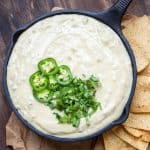Many health professionals use BMI to judge health and wellness, but is BMI accurate? Learn what we should actually use and what we need to know to make sure we are at optimal health!

Overall wellness is guided by many things, and while weight can be important it isn't necessarily indicative of where we are in our health.
As a country we are weight obsessed, this can lead us to having issues with our mental wellness. Which in turn can affect our overall health.
Podcast: Play in new window | Download | Embed Subscribe now! Apple Podcasts | iHeartRadio | TuneIn | Deezer | RSS | More
Alissa Rumsey, MS, RD, CDN, CSCS is a registered dietitian, nutrition therapist, certified intuitive eating counselor, and the author of Unapologetic Eating: Make Peace With Food and Transform Your Life. Alissa is passionate about advocating for people to reclaim the space to eat and live unapologetically.
She is the founder of Alissa Rumsey Nutrition and Wellness, a weight-inclusive nutrition practice that offers virtual counseling and online programs to help people liberate themselves from dieting, cultivate a peaceful relationship to food and their bodies, and live a more authentic, connected life.
Her expertise has been featured in hundreds of media outlets and she speaks regularly at events, online trainings, and conferences around the country. She calls New York City home and spends her free time exploring the city’s food scene and searching for patches of green space to sunbathe in.
Grab her FREE 5 step guide here!
What is BMI?
BMI stands for Body Mass Index and is a ratio between a persons weight and height.
It is used to categorized people into groups of underweight, normal weight, overweight, obese and morbidly obese
So many health professionals use this to evaluate and diagnose health.
How is BMI calculated?
The BMI equation takes a person's weight in kilograms and divides it by the person's height in meters squared.
History of BMI
A man named Adolphe Quetelet developed what was called the Quetelet index in the early 1800's. He was not a medical practitioner, but in fact was a mathematician, astronomer, statistician, sociologist and a eugenicist and had no interest in health.
Adolphe developed this equation to study population models. The data that he used to develop the equation and the categories were taken from white European groups that were mostly male. Which shows how skewed it is.
Meanwhile life insurance companies in the US needed metrics to determine their rates and began using these height and weight tables. Which again were developed using mainly white wealthy men.
Their tables showed higher rate of death for overweight people, and even though later on studies showed the opposite, that they had a lower risk, they never changed it.
Then a researcher in the 1970's was trying to find a different way to evaluate body mass, and he proposed using the Quetelet index which eventually became the body mass index and started being used by health professionals and researchers.
Accuracy of BMI
BMI is not a good indication of whether you are healthy or not healthy. It is simply a plugin of numbers.
It's easy to change categories within the span of your life by small gains or losses in weight due to differences in the stage of life or season of life you are in.
It is also found that when weight related feedback is given to people, they are less likely to make long term health changes.
A study done a few years ago (of about 40,000 people) found that almost 50% of people categorized in the overweight category and 30% in the obese category were all metabolically healthy. This means that all their numbers like blood pressure, cholesterol, triglycerides, glucose, etc was normal.
Also about 30% of people in normal category were found to be metabolically unhealthy.
Another issue is that the differences between the BMI categories are largely arbitrary. If you zoom out and look at the bigger picture you can see that a jump in category may not be that big of a jump in the weight gained or lost.
More proof of issues with BMI is that in the 1990's the National Institute of Health actually changed the numbers for the categories. So people changed categories overnight.
When it comes to children, there is actually no data on BMI as related to kids, so it is even less accurate in that arena.
While it can seem like a good measure for someone looking at large groups of people as a very vague screening, it still is not accurate.
Why does BMI say I am overweight when I'm not?
The anti fat bias plays a role. While there is a correlation between higher weights and certain health conditions or diseases, it doesn't mean the weight is the cause.
The word overweight is rooted in the BMI chart. It's assuming there is a correct weight that you should be at and if you are not at that weight, then it's incorrect.
In reality, we all have a set point range that our body will naturally stay at. We can fluctuate within that set point range. So there is not one weight that is the correct one.
What is More Accurate Than BMI?
Instead of looking at the numbers, we can focus on modifiable behaviors because those are what makes the biggest change to our health. Some of these are:
- Food
- Sleep
- Stress
- Movement
- Energy levels
- Regular self care
- Coping mechanisms
Weight is not necessarily something we can modify but we can change behaviors. While the change in behaviors may help us lose, or gain, weight, it also may not. But that doesn't mean we won't improve our health overall.
Getting regular bloodwork and other levels checked can be helpful to make sure there is nothing medically wrong, but they shouldn't be used as the main factor to determine our overall health.
Overall wellness and the person as a whole, both mental health and physical health, is so important. Making judgements based on a number or the way a person looks is not helpful.

PS- If you liked this episode of Real Food Real Conversations, please subscribe and leave me a review!
And tag me on Instagram whenever you're listening! I reply to all my messages!














Questions or comments? Let me know below!